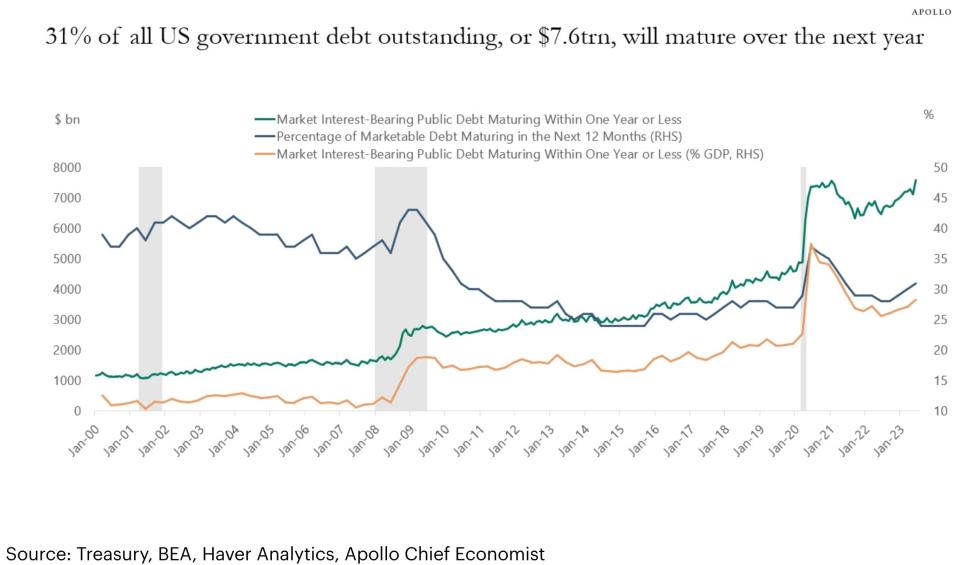
[ad_1]

-
A whopping $7.6 trillion in interest-bearing US public debt will mature within a year, Apollo’s chief economist said in September.
-
That represents 31% of all outstanding US government debt, adding upward pressure on rates.
-
That’s still below 2020, when debt maturing within a year made up a significantly larger share.
Nearly a third of all outstanding US government debt is set to mature in the next 12 months, according to an analysis from asset management firm Apollo.
A chart shared by Chief Economist Torsten Sløk in September showed that the share of US public debt set to mature in a year or less has steadily risen toward pandemic-era levels and is now at 31%.
In terms of dollar amount, that’s $7.6 trillion, a high not seen since early 2021, and is a source of upward pressure on US rates, he added.
In addition, public debt maturing in the near term accounts for more than a quarter of US GDP. However, this is below its 2020 peak, when it made up a significantly larger share.

The estimate comes as federal deficits have exploded in recent years, sharply elevating the trajectory of US debt. The Treasury Department auctioned $1 trillion in bonds just within the third quarter.
The US debt coming due next year could keep rising, after the Treasury issued its latest quarterly refunding statement in early November. Against expectations, the department elected to lean more on T-bills issuance moving forward, and slow the sale of longer-dated bonds.
Meanwhile, borrowing costs have soared in the last year and a half as the Federal Reserve embarked on an aggressive tightening campaign, raising the government’s debt-servicing costs. Despite coming down sharply in November, they remain well above year-ago levels.
Rates have also been under pressure from the Fed’s quantitative tightening program, which removed a top buyer from the bond market. The central bank has allowed about $1 trillion of its debt holdings to run off its balance sheet.
The Treasury has hit some snags trying to find enough buyers for the surge of fresh debt. Recent auctions have been met with weak demand while others saw normal uptake.
Read the original article on Business Insider
Source link




